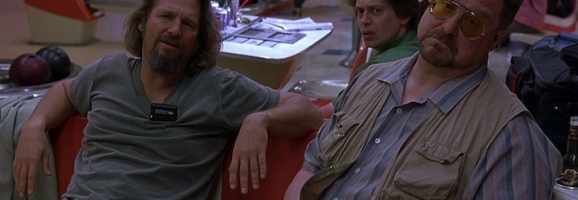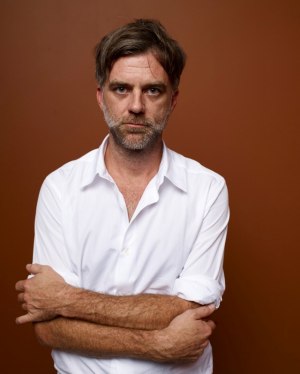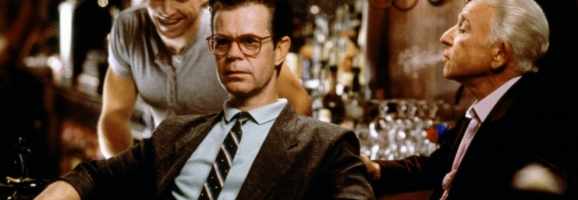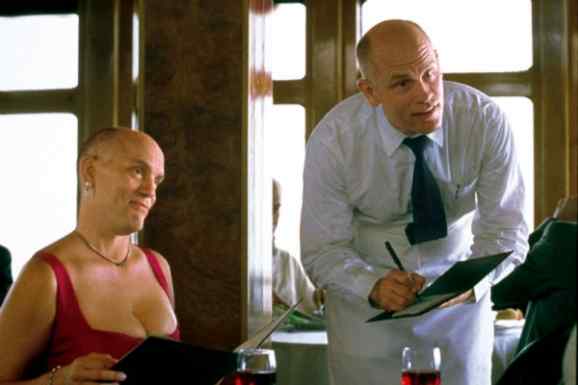The Future of Film in a Post-Genre World
It should be taken for granted that in any artistic medium, the longer the form has been around, the more innovations must occur to keep it fresh and relevant. If impressionism had never been (for lack of a better word) invented, painters today would still be copying Rembrandt. If post-modernism, or even modernism for that matter, hadn’t occurred, we might have thought we’d ran out of stories to tell. In fact, the very idea that painting and writing books are still relevant art forms is a testament to the fact that in art, innovation is everything.But whereas visual art and literature are media whose progress relies mainly on changes in style and creative approach, film–which in a way is the culmination of every artistic movement that came before it–is a bit more complicated.
Film is not only a form of artistic expression, but a technological industry as well. Therefore, it comes as no surprise that in today’s world of ever-improving and expanding empires of technology, most of the progress being made in the film industry is through technological innovation rather than formal or stylistic experimentation. In other words, what we’re seeing is better equipment, more immersive moviegoing experiences, the capability to watch a feature film on a six inch screen. Another thing we’re seeing is creative stagnation: sequels, prequels, and re-imaginings of tired stories the world over. We’re seeing movies in 3D that have no business being in 3D. We’re seeing films billed by genre instead of content. This is the era of the summer blockbuster, the Oscar-bait drama, the goofball comedy with the same actors you saw in last years goofball comedies. Films need to attract audiences who are used to these ideas; they want to go see a zombie movie, they go see a zombie movie. It’s that simple. It’s too simple.
Despite this, there are still filmmakers who are working today to bring us truly innovative content, stories we haven’t seen before, even genres we haven’t seen before. In fact, most of today’s most innovative writers and directors work outside of genre, making movies they want to make regardless of what mold they may or may not fit into. And these artists are the future of film. These are the creative minds who will influence the next generation of mavericks, today’s most influential filmmakers working outside the restrictions of tradition and conformity:
The Coen Brothers
 The Coens have been around for some time, having gotten their start in the business working for Sam Raimi on The Evil Dead and getting their first film, Blood Simple, released in 1984. Appropriately enough, their first feature is also their most straightforward in terms of genre; it’s a neo-noir thriller that, while setting the odd, semi-surrealist tone of their later work, doesn’t veer too far from the boilerplate film noir formula (i.e. morally ambiguous characters committing crimes and facing the consequences). Their second film, however, would prove to be something else entirely. Raising Arizona is a surreal dark slapstick comedy, with some thriller elements, telling the story of an impoverished criminal couple who decide to steal a baby and all of the hijinks that ensue.
The Coens have been around for some time, having gotten their start in the business working for Sam Raimi on The Evil Dead and getting their first film, Blood Simple, released in 1984. Appropriately enough, their first feature is also their most straightforward in terms of genre; it’s a neo-noir thriller that, while setting the odd, semi-surrealist tone of their later work, doesn’t veer too far from the boilerplate film noir formula (i.e. morally ambiguous characters committing crimes and facing the consequences). Their second film, however, would prove to be something else entirely. Raising Arizona is a surreal dark slapstick comedy, with some thriller elements, telling the story of an impoverished criminal couple who decide to steal a baby and all of the hijinks that ensue.
Blood Simple and Raising Arizona both set the groundwork for the Coens’ later work: most of their work seems to fall into either the neo-noir thriller (with a twist) category, or the surreal dark comedy category. Or somewhere in between. The Big Lebowski, for example, takes a couple of wacky comedy characters–The Dude, an almost stereotypical hippie-stoner; and Walter Sobchak, an unstable, bowling-obsessed Vietnam veteran–and places them in a neo-noir world whose classic archetypes seem even more ludicrous in the context of 90s Los Angeles. The result is considered by many to be one of the greatest comedies of the modern era. On the other hand, Fargo takes a similar concept–a crime drama populated by outwardly friendly and polite Minnesotans–and plays it (more or less) for drama.

In recent years, after the immense success of their adaptation of Cormac McCarthy’s No Country For Old Men (another bleak neo-noir thriller), The Coens have taken to deviating more and more from their traditional formula. Burn After Reading (2008) is arguably their most slapsticky comedy since Raising Arizona, while presenting itself as a sort of modern take on the classic espionage thriller; A Serious Man (2009), while a dark comedy like much of their earlier work, is new territory in that it tells the rather domestic story of the dissolution of a Jewish family in 1960s Minnesota, with some heavy religious overtones; True Grit (2010) is a remake of a classic Western, done in typically strange Coen Brothers style; and their latest, Inside Llewyn Davis (2013), appears to be a story about the 60s folk music scene in Greenwich Village. All of this points to the promising fact that the Coens, after nearly thirty years of making movies, have not stopped innovating and adding to the types of stories that can be told through the medium of film.
P.T. Anderson
 Categorizing Paul Thomas Anderson as an auteur is not easy, given that his films are all wildly different and at the same time seem to be connected by a single elusive thread. It seems to me that, more than anything, his work represents an attempt to capture the rawness of human existence by whatever means possible. Anderson does not work in genre, does not play off of it or even acknowledge it really. His films take on whatever form best suits the content. And this is both to his benefit and his detriment. If you were to ask me, I would tell you that I find all of his films beautiful. They capture all the anger and desperation and hopelessness and raw passion of being a human being that most other modern films seem to be lacking and portray them in ways equal parts heartbreaking and hilarious. But…and let me preface this “but” by saying everyone is obviously entitled to their own opinion and there is no way of knowing what the correct interpretation of any work of art is…it seems to me that the true value of most of Anderson’s films is lost on most critics. Let us take, for example, 2012’s The Master. It tells the story of an alcoholic, sex-addicted drifter in the 1950s who happens upon a new age religious movement (read: cult) and strikes up an incredibly co-dependent friendship with its charismatic leader; seems interesting enough, right? When the film came out, it was almost immediately lauded by critics for its cinematography and the performances of the actors…and not much else. I suppose, ultimately, the story of Freddie Quell and Lancaster Dodd and The Cause is not one which most people can ever really be made to care about. It’s just not that relatable. And that’s where the problem lies.
Categorizing Paul Thomas Anderson as an auteur is not easy, given that his films are all wildly different and at the same time seem to be connected by a single elusive thread. It seems to me that, more than anything, his work represents an attempt to capture the rawness of human existence by whatever means possible. Anderson does not work in genre, does not play off of it or even acknowledge it really. His films take on whatever form best suits the content. And this is both to his benefit and his detriment. If you were to ask me, I would tell you that I find all of his films beautiful. They capture all the anger and desperation and hopelessness and raw passion of being a human being that most other modern films seem to be lacking and portray them in ways equal parts heartbreaking and hilarious. But…and let me preface this “but” by saying everyone is obviously entitled to their own opinion and there is no way of knowing what the correct interpretation of any work of art is…it seems to me that the true value of most of Anderson’s films is lost on most critics. Let us take, for example, 2012’s The Master. It tells the story of an alcoholic, sex-addicted drifter in the 1950s who happens upon a new age religious movement (read: cult) and strikes up an incredibly co-dependent friendship with its charismatic leader; seems interesting enough, right? When the film came out, it was almost immediately lauded by critics for its cinematography and the performances of the actors…and not much else. I suppose, ultimately, the story of Freddie Quell and Lancaster Dodd and The Cause is not one which most people can ever really be made to care about. It’s just not that relatable. And that’s where the problem lies.

All of P.T. Anderson’s films are essentially about odd or dysfunctional relationships. Boogie Nights tells the story of a mostly talentless man with an exceptionally large penis who finds his family in a community of pornographers, most of whom are just as childlike and emotionally stunted as he is. Magnolia contains various interweaving tales including, but not limited to: the story of a dying game show host who may or may not have molested his daughter, the story of an also dying television producer whose fate lies in the hands of his emotionally unstable trophy wife and an estranged son who makes a living as a deeply misogynistic motivational speaker, and the story of a genius boy being exploited by his unemployed actor father. Punch-Drunk Love is about a shy, repressed man with rage issues finally finding love, while There Will Be Blood is about a sociopathic turn-of-the-century oil man falling in hate with an overzealous self-titled prophet. And The Master, as evidenced by its title, is about relationships of servitude and dependence. All of the above are about groups of people and circumstances and relationships most people rarely have to (and probably prefer not to) acknowledge. And that, more than anything, is what sets P.T. Anderson apart.
Wes Anderson
 If kitsch were a film genre, Wes Anderson would undoubtedly be at its forefront. His films, like the other Anderson’s, tend to focus on dysfunctional relationships. However, unlike Paul Thomas, Wes seems to revel more in the surreal than the real. And what connects one film to another is not substance, but style. Whether he’s telling the story of an ambitious high school outcast, a wealthy New York family, a delusional oceanographer, or even a stop-motion fox, all of Anderson’s movies feel like incredibly elaborate puppet shows. The sets are immaculately put together–unique to the last detail–and the performers act with the precision of wind-up dolls. One can only assume that watching a Wes Anderson picture is like stepping directly into the man’s imagination. Perhaps no other director is as adept at putting the image in his mind onto the screen.
If kitsch were a film genre, Wes Anderson would undoubtedly be at its forefront. His films, like the other Anderson’s, tend to focus on dysfunctional relationships. However, unlike Paul Thomas, Wes seems to revel more in the surreal than the real. And what connects one film to another is not substance, but style. Whether he’s telling the story of an ambitious high school outcast, a wealthy New York family, a delusional oceanographer, or even a stop-motion fox, all of Anderson’s movies feel like incredibly elaborate puppet shows. The sets are immaculately put together–unique to the last detail–and the performers act with the precision of wind-up dolls. One can only assume that watching a Wes Anderson picture is like stepping directly into the man’s imagination. Perhaps no other director is as adept at putting the image in his mind onto the screen.

The interesting thing is that Anderson’s films, while not concerned with labelling themselves in terms of genre, have almost become a genre in and of themselves. In other words, giving a film the Wes Anderson label has the same affect as identifying a film by genre. Telling someone a film is by Wes Anderson immediately brings to mind certain expectations. Yes, this is true for most directors, but few have as specific a brand as Anderson and few live up to those expectations as consistently. Although his work has evolved over the years, Rushmore, The Royal Tenenbaums, The Life Aquatic, The Darjeeling Limited, Fantastic Mr. Fox, and Moonrise Kingdom all feel distinctly like they are part of the same odd, enchanting stylistic universe.
Spike Jonze
 After a decade or so of directing music videos, short films, and skate videos, Spike Jonze got his start as a feature director in 1999 with the Charlie Kaufman-penned Being John Malkovich, which tells the story of an unemployed puppeteer who happens upon a portal into the mind of actor John Malkovich. As one might expect, some metaphysical hijinks ensue. It was met mainly with warmth from critics and indifference from audiences. His next feature, also written by Kaufman, was only slightly less surreal. Adaptation is essentially a chronicle of what happens when one attempt to adapt the unadaptable–in this case the non-fiction book The Orchid Thief–and how the lines between the story and the storyteller’s story can so easily become blurred. This film was also missing what one might call “mainstream appeal.” Jonez’s next work, on the other hand, had the advantage of being based on a classic children’s book: Maurice Sendak’s Where The Wild Things Are. However, even this handicap was not enough to keep Jonez’s vision–which told the story strictly from a child’s perspective–from alienating certain audiences. His latest film, simple entitled Her, has yet to be released–we’ll see how that goes.
After a decade or so of directing music videos, short films, and skate videos, Spike Jonze got his start as a feature director in 1999 with the Charlie Kaufman-penned Being John Malkovich, which tells the story of an unemployed puppeteer who happens upon a portal into the mind of actor John Malkovich. As one might expect, some metaphysical hijinks ensue. It was met mainly with warmth from critics and indifference from audiences. His next feature, also written by Kaufman, was only slightly less surreal. Adaptation is essentially a chronicle of what happens when one attempt to adapt the unadaptable–in this case the non-fiction book The Orchid Thief–and how the lines between the story and the storyteller’s story can so easily become blurred. This film was also missing what one might call “mainstream appeal.” Jonez’s next work, on the other hand, had the advantage of being based on a classic children’s book: Maurice Sendak’s Where The Wild Things Are. However, even this handicap was not enough to keep Jonez’s vision–which told the story strictly from a child’s perspective–from alienating certain audiences. His latest film, simple entitled Her, has yet to be released–we’ll see how that goes.

The interesting thing about Jonze in the context of this list is that he did not get his start as an auteur, simple as a director…and yet he still managed to create a reputation for himself amongst film buffs. His unique style managed to stand out despite the fact that he wasn’t always telling his own stories. And it continues to stand out now that he’s doing just that. And if we–audiences and filmmakers alike–want to move past this idea of genre as default, creativity is all we need. It’s that simple. We need artists who can make a mark in the culture.
Of course, Jonze and the Andersons and the Coens aren’t the only filmmakers out there with unique, genre-defying visions. We have David O. Russell, Alexander Payne, Michel Gondry, Lars Von Trier, Harmony Korine, and more. Some of those names are more recognizable than others, but they all have at least one thing in common: the name is the key. When it comes to advertising films, there seem to be three main types of targets: specific demographics, genre fans, or fans of particular filmmakers. Now, there’s no denying that films that defy categorization tend to find limited success because they’re difficult to market. But then why do people go to see Wes Anderson films or Coen Brothers films? It’s all in the name. When you’ve built a reputation, you can make whatever you want. And as long as filmmakers are building reputations they have to make films that are easy to market, and as long as films are being made that are easy to market those directors’ visions are being compromised. And that means we’re left with far more mediocre films than good ones, especially since most of those directors don’t make it past the reputation building stage.
I believe that today’s filmmakers have a lot more potential than we give them credit for. And if we want them to exercise that potential, we need to abandon the idea of genre altogether. It served a purpose in the past, and arguably it made the film industry into what it is today (for better or for worse). But we don’t need it anymore. People will keep watching movies and advertisers will find new, better ways to market them. We don’t need genre anymore. It’s outdated and far too limiting. Let’s stop making action movies and rom-coms and superhero films. Let’s just make movies.
What do you think? Leave a comment.











Great writing Arzhang. I want to add Terrence Malick to this list of legendary directors… and maybe Michael Haneke deserves a spot.
And foreign talents, Gaspar Noé, Aleksandr Sokurov, Alejandro Jodorowsky, Alain Robbe-Grillet…..
I find a cool detachment in Coen’s movies. Although I enjoy parts of their movies, I usually wonder what the point is. Perhaps i’m just used to movies trying to make you feel something. I do love the humor in the movies and the social commentary. But no real connection.
IMO, their greatness is in the details and they don’t always jump out at everyone. Every one of their movies leave at least one scene that is unforgettable for me. Sometimes they’re simple scenes, like the scene in True Grit where they hang the Indian without giving him his last words or at the end of The Big Lebowski when The Dude and Walter get a face full of Donny’s ashes.
I’m not a fan of all their movies but the ones I like, I really like.
How can you not feel anything when Jerry Lundegarard is scraping his windows in the parking lot or when you find out Llewelyn Moss is dead? At the end of Serious Man when Larry gets the phone call? When Gaear Grimsrud stares into the car before killing the scared girl inside?
Jonze is great. I like to compare his work to David Lynch and Terry Gilliam because they made some weird/mind trip like movies (12 Moneys, Fear And Loathing In Las Vegas, Inland Empire, Mulholland Drive, etc.). Spike’s first two movies fall into that category because their surreal, philosophical and irreverent. Where The Wild Things Are is a great example of a serious filmmaker who goes out of his way to deliver a great family film and I like to compare that movie to The Elephant Man, The Straight Story, Baron Munchausen and Time Bandits.
And when I saw Being John Malkovich, it was so evocative of Brazil. Wow, I felt I had to write something. 🙂 Another filmmaker that comes to mind I think is Sofia Coppola. Absolutely one of my favorites.
Wes has been a little disappointing as of lately. ‘Moonrise Kingdom’ wasn’t good. There’s hardly any story and there certainly isn’t any kind of point. Also, if any else had filmed a 12 year old boy groping a 12 year old girl, they’d have been torn a new one, but because it was Wes Anderson, he gets a pass because he’s a quirky auteur and that makes it OK. My opinion.
Moonrise Kingdom was entirely charming and aesthetically fully realized. It was an exercise in contemporary New Wavism (Godard would be proud) and had a “cute” plot. And I also do not think Wes Anderson gets a pass with anything sexual in the film, as it is not very sexual, nor is anywhere near pornographic.
It took me a couple viewings of The Royal Tenenbaums to really appreciate Wes Anderson…I like the way that he tells stories with the quirky but funny humor and with Moonrise Kingdom, it seems he was able to inject the story with some heart as well..
PTA the epitome of filmmaking for the sheer joy of it, rather than trying to show off and gain respect. I can watch any of his movies over and over and always be completely blown away. His lack of attention seeking reduces his chances of becoming as recognized as a Tarantino/Fincher/Nolan, but it also adds to the charm of his work.
I believe there are some homages throughout a couple of Paul T Andersons films to Kubrick but as far as him comparing to Kubrick there’s no comparison. The only thing Id say about him in comparison to Kubrick is that his films will most likely not be received with high praise initially and need time to let them roll around in the heads of the viewers.
Many of my favorite directors are on this list. My fantasy project for the Coens would be “The Master and Margarita”, by Mikhail Bulgakov. The central theme is one that is touched on in a number of Coen films: The tension between the purely rational man, who believes that all questions can be answered and Man defines his destiny, and the man of faith, who is not satisfied with the tangible and must pursue the transcendental. Bulgakov wrote this book under the shadow of Stalin, where the rationalists held the upper hand and the religionists were hammered down. Somehow, this happy foundation failed to produce the predicted utopia. (Rather weirdly, although Stalin had so many innocent people killed, he kept an eye of Bulgakov but let him live out his life. It’s as if Stalin knew that Bulgakov was a dissident and so he didn’t have to be paranoid about him making secret plots while pretending to be a friend.)
The story involves a visit to Russia by a mysterious stranger, a black magician who has, it seems, been given permission to perform at a local theater. He interacts with a number of citizens and bureaucrats, spinning into territory that is magical and horrifying. There’s an ongoing story-within-a-story about the Crucifixion, and the burden of guilt carried by Pontius Pilate.
This is a complex tale, and would be difficult to lay out in a single film. Nevertheless, there have been a number of dramatic takes on it, mostly out of Europe. A movie or two, a mini-series or two, a couple of plays…I saw one performed here in Los Angeles a few years back, and it was quite good. Andrew Lloyd Webber had once announced his intention to turn M&M into an opera, but he later abandoned the project.
I think this is the kind of thing that would appeal to the Coens, if they thought they could fit it into a script. And the Coens are the best people I can think of to do this job properly. However, the scale of the production would likely require a larger budget than they typically get.
I have made many honest attempts to understand exactly why so many (including a good friend of mine) seem to fawn over Wes Anderson movies, and after many tries, I just can’t.
I don’t want to troll, as I have really tried to ‘get’ exactly why I seem to lack the gene to appreciate this guy’s movies.
First off, I’m a big lover of unconventional filmmakers; Kubrick’s “2001” is my favorite movie of all time. And I also love Tarkovsky, and Truffaut. For humor, sometimes my tastes run more into the dark side; I think Quentin Tarantino is the funniest filmmaker working today (“Jackie Brown” is my personal favorite of his). I also love Sidney Lumet movies, such as the darkly satirical “Network.” With a movie collection that would make the late Roger Ebert blush, I think I’m fairly open and well rounded in my film tastes. I try to be, anyway….
But when I try to get into Anderson’s stuff? They just do NOTHING for me. None of his characters are believable; none of his dialogue rings true, funny or even vaguely interesting for me. His humor is too simplistic and almost childish to be really ‘funny’ (again, IMO of course). “Rushmore” was just so much hype and so little delivery. “The Life Aquatic…” was probably the closest to almost ‘funny’ I’ve ever seen from him, and even that one fell short (with its parody of Jacques Cousteau, he had PLENTY of material to mine, but didn’t).
I even gave Anderson yet another try (on my birthday, no less) when I chose “The Fantastic Mr Fox” for my birthday movie back in 2010 (or whenever it came out). I actually apologized to my wife for making her sit through it. I admired the animation technique, but the movie was about as interesting as making toast. And the jokes were just terrible. The movie left me saying PLENTY of “cuss” words afterward….
My friend swears by Wes Anderson. But despite many tries, I truly don’t get why….
Well history is probably bound to repeat itself. Mainstream Hollywood will push spectacles with a few innovators working within it, on the indie scene and in foreign countries, probably with mid card billing amongst the masses.
I see it going two ways, we will either get a situation like in the 70’s where the studio system collapsed and more auteur films are pushed into the mainstream by necessity or the burgeoning internet culture will lead to the democratization of experimental or innovative cinema (which it has already done to an extent) while the studio’s either slowly decline in relevance or will continue going but cinetastes will no longer affiliate with them. That’s my two cents on the subject.
I really, honestly and thoroughly disagree with this article and its argument. It’s an incredibly short-sighted picture of film history that misunderstands almost everything that’s happened before now. All of the things that are supposed to be “wrong” with film have been wrong since it started. As well, technological innovation has always been incredibly important, and facilitated narrative innovation. The same thing happens now.
I like the focus of your article and the filmmakers you select are obviously very fitting, though of course there are others as well.
However, I question your insistence that we abandon genre. I suppose this is a matter of perspective, but genre is never really fluid, and many of the filmmakers to which you refer are simply revising genres. As Derrida reminds us, there is no genreless text. But if you’re referring to genre as a strict set of conventions, then yes, these filmmakers find creative ways to deviate from them.
But can’t we have so-called auteur filmmakers who also make genre films? It seems to me that some of our greatest filmmakers have done just that.
An interesting and contentious article. However some things that, I feel, need to raised:
Genre will not be abandoned as long as it makes for a useful discursive tool as well as a marketing one (and philosophically speaking, genre is bound to notions of essentialism and structuralism – which post-modern films and thinkers have sought to challenge).
Also, the frame of this article suggests because *American* cinema is churning out remakes, sequels and a lack of ‘visionary’ auteurs that this is somehow symptomatic of the whole of cinema, which is rather short-sighted.
Genre is not a strictly American phenomenon – in fact the most inventive contemporary genre films are to be found outside of America – such as South Korea, Japan and Bollywood.
I say bring on the post-genre films!
Loving them so far (#fuckyeahcoenbrothers), though I can’t say that I’m a big fan of Wes Anderson. I liked The Darjeeling Limited, but Moonrise Kingdom and The Royal Tenenbaums didn’t do much for me. The Grand Budapest Hotel’s trailer looks pretty promising though 🙂
This list seems to be drawn within the anglophone mainstream cinema. I wish the list had more of world cinema into it
Beside the point, the article is well written!
Totally agree that genre is becoming less and less relevant in the postmodernist film world. One thing that I found interesting was that these filmmakers that you wrote about, as well as some of those which were touched on in the comments, seem to me to be classic auteurs. No matter the genre… or mix of genres.. that they produce, there is something about them either stylistically or content wise that truly sets them apart. I think the auteur mindset will disappear far later than a genre one.
Genre is still highly important to Hollywood, however digital technology is certainly helping the independents to rise and with them more unique and challenging styles of filmmaking.
I agree with some of the comments above, there is a lot of interesting non-anglophone ‘post-genre’ cinema. It is shame Hollywood takes hold of many of the successful adventurous indie films and transforms them into remakes though. It would be nice to see more edgy and original work coming from the big studios too.
Genre films are definitely a more generic, easy form of film to watch. They are great if you want to sit down and zone out for a few hours, but other than that they don’t bring anything new or exciting to the table. Post-genre films are the way to go (and sssooooo much more rewarding to watch!!)
The Coen Brothers are god sent, I love their work so so much (No Country For Old Men and The Big Lebowski!?! Enough said). Lars von Trier is another awesome post-genre director/screenwriter, his film Melancholia is one of my faves 🙂
Genre, like the categorisation of directors or otherwise, is a necessary evil as it creates continuity. While your argument is debatable, it is an interesting one. With a more accessible film archive recent, with films available via online streaming, torrenting, it is probable that genre may become less relevant. But, I doubt that we will ever live in a ‘post-genre world’, as it is necessary to categorise art (or at least the majority of it) in order to understand its origins, and thus, its significance when viewed against its counterparts. Still, I really enjoyed this well-written article, and the debate it has incited.
Great read!
The film makers mentioned are the ones that will be remembered 50 years down the line. Their work so far has already been new and exciting, creating modern classics, and although we may be able to say that with some highly commercially successful film makers such as the Coens, their best work is behind them? Well Martin Scorsese is still wowing audiences with a new film out this year.
I was going to say: I’m a bit confused as to the argument you’re making here. It seems that all these filmmakers take a particular genre and bend it to their will, mixing in other elements from other genres. The Coens are a good example of this – they defy convention, but not genre.
I really enjoyed reading your article. A lot of the movies you list here I haven’t seen yet, but I am very intrigued. The question of genre and auteurs is really a difficult one, and it is true that all the directors you mention have created a reputation that appeals to audiences. People go and see the new Anderson,the latest Terrence Malik or Coen brothers. It has become a genre on its own. I find a little odd that you only refer to American directors, still part of the Hollywood system. I believe national cinemas are still attached to a more independent cinema, and foreign directors form a rich authorship group.
I think what sets apart “The Master” from PTA’s films is that Freddie and Lancaster’s relationship grows and fluorishes offscreen and we are only given glimpses into certain intimate moments. The “Slow Boat to China” scene suffered from this because the song is introduced in a deleted scene.
One of the striking things about PTA’s work is the transition between Boogie Nights, Magnolia, and then Punch Drunk Love. Boogie Nights is pure epic, and as we go through Magnolia and then Punch Drunk Love, PTA condenses and condenses. Magnolia is huge, but fragmented at best, and while wholly operatic, is not large. Punch Drunk Love takes a slice of Magnolia and is essentially a film length music video for elevator music.